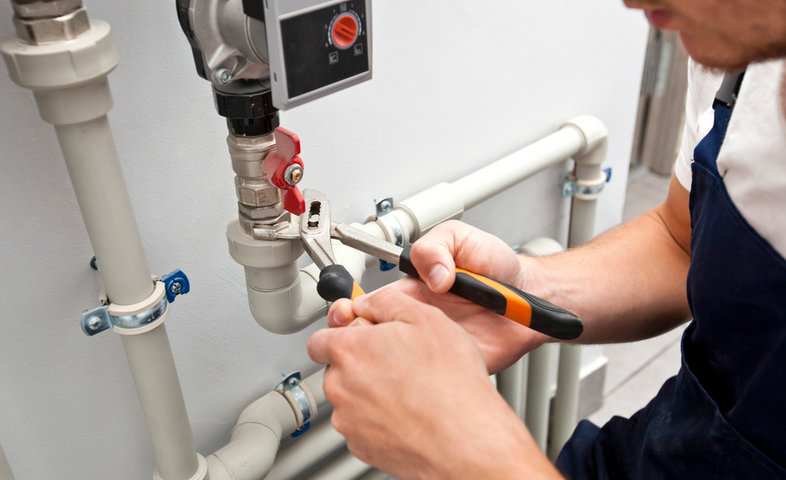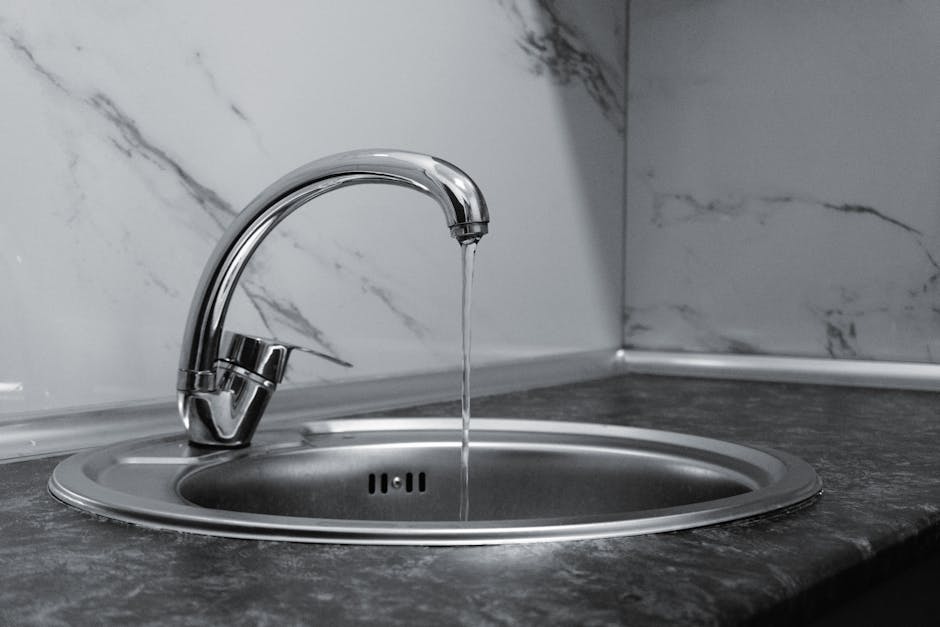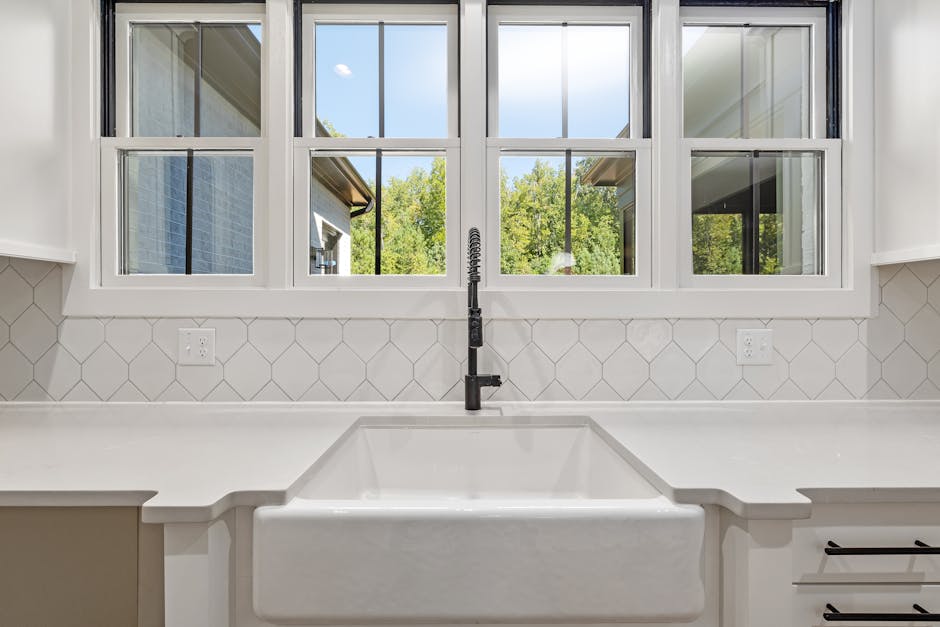
From the scorching 100-degree summers that put extra strain on water heaters to the hard water deposits that can wreak havoc on pipes, staying ahead of potential issues is crucial. While plumbing problems can be daunting, a little proactive knowledge goes a long way. At Always Affordable Plumbing, we believe that informed homeowners are empowered homeowners, and that's why we've compiled our top three plumbing tips for 2021, designed specifically with the Sacramento region in mind. These tips aren't just about quick fixes; they're about fostering a healthy, efficient plumbing system that stands the test of time and local conditions.
Understanding the Most Common Plumbing Issues in Sacramento Area Homes
Before diving into our top tips, it's essential to understand the landscape of plumbing challenges that Sacramento area homeowners frequently encounter. Our Mediterranean climate, characterized by long, hot, dry summers and mild, wet winters, plays a significant role in plumbing wear and tear. Hard water is a perennial issue, leading to mineral buildup in pipes, fixtures, and water heaters, reducing efficiency and lifespan. Additionally, the clay soil prevalent in many parts of the region can shift, causing stress on underground pipes and making them susceptible to damage from tree roots seeking moisture. Older tract homes often come with aging plumbing infrastructure, increasing the likelihood of leaks and pipe corrosion. Being aware of these common adversaries is the first step toward effective plumbing maintenance.
Why Sacramento's Environment Makes These Tips Crucial
The unique environmental factors in Sacramento aren't just theoretical concerns; they directly impact the efficacy and necessity of specific plumbing practices. The Delta breeze might bring relief on a hot summer evening, but the persistent high temperatures through the day mean constant demand on water supply and drainage, especially in homes without modern, efficient fixtures. Hard water, derived from the region's aquifers and rivers, carries dissolved minerals like calcium and magnesium that deposit as scale inside pipes and appliances. This scale reduces water flow, increases energy consumption for water heating, and eventually necessitates costly repairs. Furthermore, the extensive urban canopy and mature trees, while beautiful, send out aggressive roots that can infiltrate and crush sewer lines, particularly where older, more porous pipes are in place. These factors elevate simple maintenance tips from good advice to critical preventative measures for Sacramento homeowners.
Tip 1: Protect Your Drains – The Foundation of a Healthy Plumbing System
One of the most frequent and preventable plumbing problems homeowners face is a clogged drain. While it might seem minor, persistent clogs can indicate deeper issues and, if left unaddressed, can lead to costly backups and even pipe damage. For Sacramento homes, where residents enjoy cooking and entertaining, the proper disposal of fats, oils, and grease (FOG) is paramount. These substances solidify in your pipes, especially when mixed with food particles, creating stubborn blockages that chemical drain cleaners often only temporarily alleviate or, worse, corrode your pipes over time.
- Use Drain Screens: Simple, inexpensive screens placed over shower and tub drains are incredibly effective at catching hair, soap scum, and other debris before it enters your plumbing system. For kitchen sinks, a mesh strainer can prevent food particles from going down the drain.
- Proper Grease Disposal: Never pour cooking grease or oil down the drain. Instead, let it cool and solidify, then scrape it into the trash.
- Beware of 'Flushable' Wipes: Despite their label, these wipes do not break down in pipes like toilet paper and are a leading cause of sewer main clogs in municipal systems and home plumbing alike. Only toilet paper should be flushed.
- Regular Flushing: Periodically flush your drains with hot water after use, and consider a mixture of baking soda and vinegar followed by hot water as a natural, gentle way to keep drains clear of minor buildup.
- Professional Cleaning: If clogs become frequent, it's a sign you need professional help. Always Affordable Plumbing can perform hydro-jetting or snaking services to thoroughly clear your lines, addressing the root cause rather than just the symptom.
By diligently protecting your drains, you’re not just preventing clogs; you’re extending the life of your entire plumbing system and avoiding unpleasant, unexpected emergencies.
Tip 2: Understand Your Water Heater – Efficiency and Longevity in Our Climate
Your water heater is arguably one of the hardest-working appliances in your Sacramento home, especially during those long, hot summers when everyone is showering more frequently or running dishwashers and washing machines. Given the pervasive hard water in our region, proper water heater maintenance is not just recommended; it's essential for efficiency and longevity.
- Annual Flushing: This is perhaps the most critical maintenance task for tank-style water heaters in Sacramento. Hard water minerals precipitate and settle at the bottom of the tank, forming a layer of sediment. This sediment reduces heating efficiency, takes up space, and can lead to premature tank failure. Draining and flushing your tank annually removes this buildup, helping your water heater run more efficiently and last longer.
- Check the Anode Rod: The anode rod is a sacrificial metal rod inside your water heater designed to corrode before the tank itself. In areas with hard water, these rods can deteriorate faster. Inspecting and replacing the anode rod every 3-5 years can significantly extend the life of your water heater.
- Temperature Settings: Most water heaters are factory-set at 140°F, but 120°F is usually sufficient for household needs, saves energy, and reduces the risk of scalding. Lowering the temperature can also slow down mineral buildup.
- Insulate Pipes (if applicable): While Sacramento winters are generally mild, insulating the first six feet of hot and cold water pipes connected to your water heater can reduce heat loss and improve efficiency, especially in unconditioned spaces like garages.
- Consider a Tankless Water Heater: If you're due for a replacement, a tankless water heater might be a smart investment for Sacramento. They heat water on demand, eliminating standby heat loss, and often have longer lifespans. However, they also require specific maintenance to handle hard water, often involving descaling.
Regular maintenance ensures your water heater provides reliable hot water, reduces energy costs, and helps you avoid the inconvenience and expense of an unexpected breakdown. For expert advice or service, Always Affordable Plumbing is ready to help you maintain or upgrade your water heating system.
Tip 3: Watch for Leaks – Smart Habits for Long-Term Savings
Leaks are insidious plumbing problems that can start small and seemingly insignificant but can escalate into major headaches, leading to wasted water, inflated utility bills, and potentially extensive property damage. In Sacramento, where water conservation is always a consideration, even a drip from a faucet or a silent toilet leak can add up to hundreds or thousands of gallons of wasted water per year. Moreover, undetected leaks behind walls or under slabs, common in older tract homes with aging piping, can cause significant structural damage and mold growth.
- Regular Visual Inspections: Make it a habit to regularly check around your toilets, sinks, showers, and appliances (dishwasher, washing machine, water heater) for any signs of moisture, drips, or puddles. Pay attention to discolored ceilings, walls, or floors, which could indicate a hidden leak.
- Monitor Your Water Meter: This is one of the most effective ways to detect hidden leaks. First, ensure no water is being used inside or outside your home. Then, check your water meter. If the dial is moving, you likely have a leak somewhere in your system. This simple check can uncover issues like running toilets or irrigation leaks.
- Toilet Leak Test: Add a few drops of food coloring to your toilet tank. Wait 15-20 minutes without flushing. If the color appears in the bowl, you have a silent leak, often due to a faulty flapper valve.
- Check Outdoor Faucets and Irrigation: Sacramento's warm climate means outdoor water use is significant. Regularly inspect garden hoses, sprinkler systems, and outdoor faucets for drips and leaks. A leaking spigot can waste an enormous amount of water.
- Pay Attention to Your Water Bill: A sudden, unexplained increase in your water bill is a strong indicator of a leak, even if you haven't spotted any visible signs.
Early leak detection can save you significant money and prevent costly repairs down the line. If you suspect a hidden leak or need assistance diagnosing a problem, the team at Always Affordable Plumbing has the expertise and equipment to locate and repair leaks efficiently, protecting your home and your wallet.
Recognizing When Professional Help is Needed
While these plumbing tips empower Sacramento homeowners to handle many routine maintenance tasks and identify potential issues, there are definite limits to DIY plumbing. Knowing when to call in the professionals is crucial to prevent further damage, ensure safety, and comply with local codes. Attempting complex repairs without the proper tools, experience, or licensing can turn a small problem into a catastrophic and expensive one.
- Persistent Clogs: If you've tried simple methods and your drain remains stubbornly clogged, or if clogs occur frequently, it suggests a deeper issue like tree root intrusion, a collapsed pipe, or significant grease buildup that requires professional equipment like hydro-jetting.
- No Hot Water/Intermittent Hot Water: This often points to a problem with your water heater's heating element, thermostat, or a substantial sediment buildup. These repairs can be dangerous if not handled correctly.
- Low Water Pressure: While sometimes caused by an aerator blockage, widespread low water pressure throughout your home could indicate serious pipe corrosion, a main water line leak, or issues with your pressure regulator.
- Strange Noises from Pipes or Water Heater: Banging, whistling, gurgling, or rumbling sounds can signal anything from trapped air to sediment buildup, or even loose pipes requiring professional assessment.
- Visible Leaks You Can't Stop: If a pipe is actively leaking and you can't contain it, or if you suspect a slab leak (indicated by warm spots on the floor, sudden carpet dampness, or cracks in the foundation), immediate professional intervention is necessary to prevent severe structural damage and mold.
- Sewer Backups: Any sewage backing up into sinks, tubs, or toilets is a health hazard and indicates a major blockage in your main sewer line that requires immediate attention from a qualified plumber.
When in doubt, it's always best to consult with a licensed and experienced plumber. Always Affordable Plumbing technicians are equipped to diagnose and resolve complex plumbing issues safely and effectively, providing peace of mind to Sacramento homeowners.
Long-Term Prevention: Beyond the Top 3 Tips
Beyond our top three tips, a holistic approach to plumbing maintenance will serve your Sacramento home well for years to come. Thinking long-term means investing a little time and effort now to avoid significant expenses later.
- Know Your Main Shut-Off Valve: This is a simple but critical piece of knowledge. In the event of a major leak or burst pipe, knowing how to quickly turn off your home's main water supply can prevent extensive water damage. Practice locating and operating it.
- Annual Plumbing Inspections: Just like getting your car checked, a yearly professional plumbing inspection can identify minor issues before they escalate. A plumber can spot early signs of corrosion, wear and tear on fixtures, potential leaks, and drain blockages.
- Water Softeners: Given Sacramento's hard water, installing a water softener can be a beneficial long-term investment. It helps prevent mineral buildup in pipes, appliances, and fixtures, extending their lifespan and improving water quality.
- Smart Waste Disposal: Be mindful of what goes down your drains and garbage disposal. Avoid fibrous foods, coffee grounds, and anything non-biodegradable.
- Address Small Repairs Promptly: Don't procrastinate on fixing a dripping faucet or a running toilet. These seemingly minor issues contribute to water waste and can indicate underlying problems that might worsen over time.
By integrating these practices into your home maintenance routine, you’re not just maintaining; you’re optimizing your plumbing system for durability and efficiency, a smart move for any Sacramento homeowner.
Frequently Asked Questions About Home Plumbing Maintenance
What are the signs of a hidden water leak?
Common signs include an unexplained increase in your water bill, discolored spots or dampness on walls, ceilings, or floors, a musty odor, the sound of running water when no fixtures are in use, or your water meter dial moving when all water is off.
How often should I flush my water heater?
For tank-style water heaters in Sacramento with our hard water, it's highly recommended to flush your water heater annually to remove sediment buildup and extend its lifespan.
Can I use chemical drain cleaners for clogs?
It's generally advised to avoid chemical drain cleaners as they can be harsh on pipes, especially older ones, and often only provide a temporary solution. For recurring clogs, it's best to use natural alternatives or call a professional plumber.
Why is my toilet constantly running?
A running toilet is typically caused by a faulty flapper valve that isn't sealing properly, a float that's set too high, or a problem with the fill valve. These are often easy DIY fixes but can waste a lot of water if ignored.
What is hard water, and how does it affect my plumbing?
Hard water contains high levels of dissolved minerals like calcium and magnesium. It can lead to mineral buildup (scale) in pipes, fixtures, and appliances, reducing efficiency, increasing energy costs, and shortening the lifespan of your plumbing system.
Should I insulate my pipes in Sacramento?
While severe freezes are rare, insulating exposed pipes in unheated areas like garages or crawl spaces can prevent freezing during cold snaps and also improve hot water delivery efficiency by reducing heat loss.
What should I do if a pipe bursts?
Immediately locate and turn off your home's main water supply valve. Then, open faucets to drain any remaining water from the pipes. Once the water is off, call a professional plumber for emergency repair.
How can I prevent tree roots from damaging my sewer lines?
Awareness is key. If you have older, porous pipes and large trees nearby, consider replacing old lines with root-resistant PVC pipes. Regular sewer line inspections and occasional hydro-jetting can also help manage root intrusion.
How do I know if my garbage disposal is broken?
Signs of a broken garbage disposal include humming without grinding, complete silence when turned on, frequent tripping of the circuit breaker, or persistent leaks from the unit. Attempt basic troubleshooting before calling a plumber.
When should I replace my water heater?
Most tank-style water heaters last 10-15 years. Signs it might be time for replacement include frequent repairs, rusting water, strange noises from the tank, or a noticeable decrease in hot water supply.
What's the difference between a tankless and traditional water heater?
A traditional water heater stores and continuously heats a reservoir of water. A tankless water heater heats water on demand, only when you need it, which can be more energy-efficient and provide an endless supply of hot water, though it has a higher upfront cost.
How often should I have my plumbing inspected professionally?
It's generally recommended to have a professional plumbing inspection every one to two years, especially for older homes, to catch small issues before they become major problems and ensure your system is operating efficiently.
Other Blogs
Customer Testimonials
See what our satisfied customers have to say about their experience with Always Affordable
Plumbing & HVAC.
Latest Blog Posts


Keeping Your Home's Pipes Pristine: Residential Drain Cleaning in Sacramento, CA






